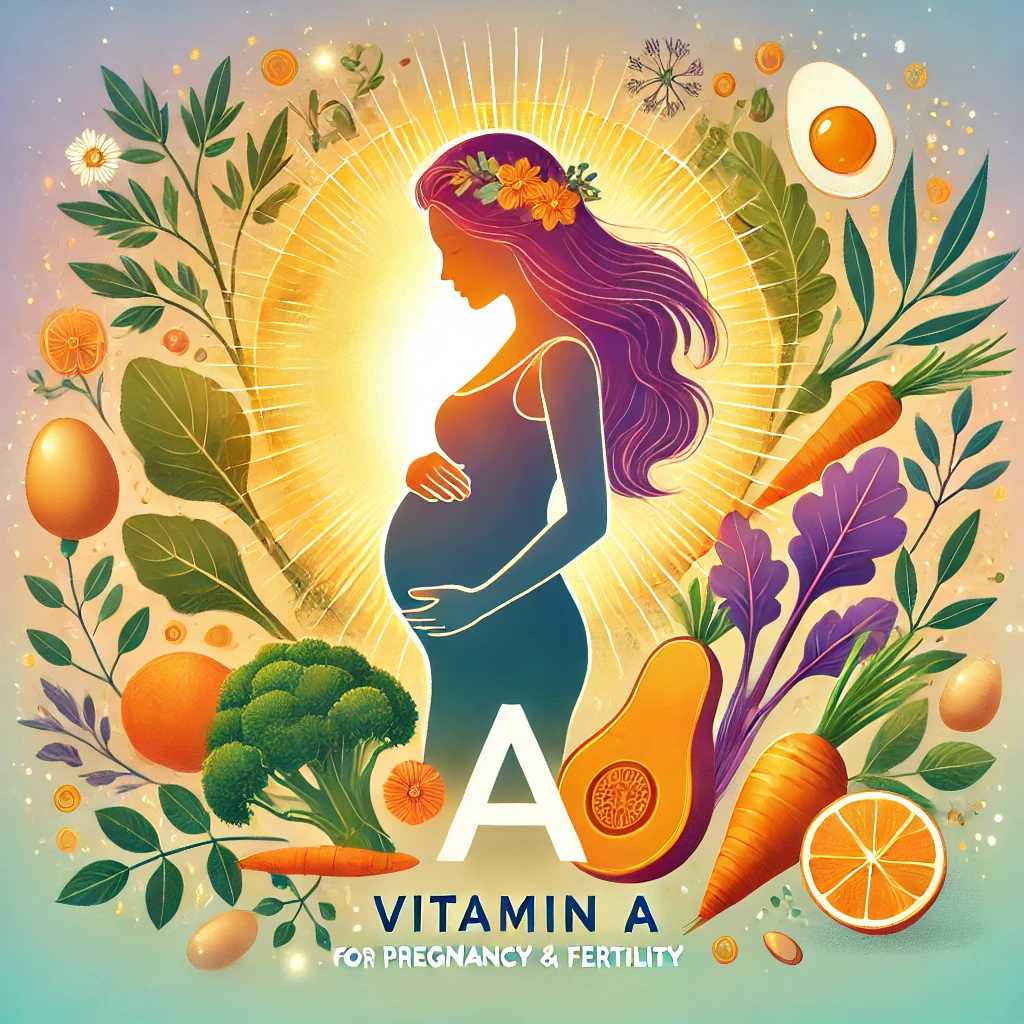Understanding Egg Freezing: Who Should Consider It and Why?
Egg freezing, also known as oocyte cryopreservation, is a medical procedure that allows women to preserve their fertility by freezing and storing eggs for future use. As advancements in reproductive technology continue to evolve, more women are considering this option to take control of their reproductive timelines. Here’s a comprehensive guide to understanding egg freezing, its benefits, and who it’s most suitable for. Why Do Women Consider Egg Freezing? 1. Age-Related Fertility Decline Women’s fertility naturally declines with age, especially after 35. Egg freezing allows women to preserve their eggs during their most fertile years, ensuring better chances of conception …
Vitamin A in Pregnancy and Fertility: What You Need to Know
Aspect Details Tips for Expecting Mothers Importance of Vitamin A Essential for fetal development, vision, and immune health Balance intake to avoid deficiency or excess Role in Fertility Supports reproductive health and hormonal balance Include Vitamin A-rich foods in your diet Safe Dosage During Pregnancy Recommended daily intake is 770 mcg for pregnant women Avoid high-dose supplements without consulting a doctor Sources of Vitamin A Found in animal-based (retinol) and plant-based (beta-carotene) foods Focus on leafy greens, carrots, and dairy Risks of Excess Vitamin A Excessive intake can cause birth defects or liver toxicity Monitor intake from both food and …
How to Afford IVF: Financial Tips and Tricks for Couples
Aspect Details Tips for Couples Understanding IVF Costs Costs vary depending on location, clinic, and treatment options Compare prices globally for better options IVF in Turkey Affordable, high-quality IVF treatments with experienced professionals Explore options at IVFTurkey for top care Financial Planning Save, budget, and explore financing options Create a dedicated savings plan Insurance and Assistance Check for fertility coverage or grants Research employer benefits and grants Traveling for IVF Save money by combining treatment with affordable travel in Turkey Plan accommodations and transport early IVF can be a costly endeavor, but with proper planning and research, it’s possible to …
What Happens to Unused Embryos After IVF?
Option Details Key Considerations Freezing (Cryopreservation) Embryos are preserved for future IVF cycles Storage fees and long-term decision-making Donation to Others Embryos can be donated to couples struggling with infertility Requires legal agreements and ethical consent Donation to Research Embryos can contribute to scientific advancements in reproductive health Consent and ethical considerations Disposal Embryos are respectfully discarded according to legal and ethical guidelines Emotional and ethical implications IVF often produces more embryos than are needed for immediate use, leaving couples with decisions to make about the future of their unused embryos. These embryos represent potential life, and determining their fate …
Optimizing Intimacy for Conception: Insights on Timing, Frequency, and Positions
For couples trying to conceive (TTC), intimacy takes on a new dimension, blending emotional connection with a goal-oriented approach. From timing and frequency to exploring the role of sex positions, understanding the nuances of intimacy can make the process more efficient and less stressful. This guide delves into optimizing intimacy, debunking myths, and addressing common questions to support your journey toward conception. Timing is Key: The Fertile Window The fertile window spans the 5–6 days surrounding ovulation, with the highest chance of conception occurring on the day of ovulation and the day before. How to Track Ovulation: Use ovulation predictor …







